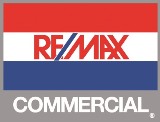
A lot of training and experience goes into good valuations. A variety of complex factors are involved. Plus, there are certainly some subjective elements. That means that one professional’s valuation may be different from the next. Let’s take a look at some of the factors involved when it comes to achieving an accurate valuation.
Intellectual Property
Determining the value of IP or other intangible assets can be difficult. If the business in question has trademarks, copyrights and patents, it can be far more challenging to properly assign a value.
Products and Services
As it turns out, businesses that only offer one product or service are far more difficult to analyze. If a company has a lot of product diversity, a professional will typically assess a higher value. The same is true for companies that have only one or two key customers. Lack of customer diversity can bring down overall values.
Employee-Owned Companies
If a company is partially or completely employee owned, it can lower its marketability. Many company owners do not realize that employee stock ownership plans (ESOP) can change its overall value.
Life-Cycles and Supply Chains
In some cases, a business is nearing obsolescence due to advancements that have taken place. We often see this in technology companies. It should come as no surprise that if a business is near the end of its life cycle, this will raise potential issues during the valuation process. On a similar note, could the business be susceptible to supply disruptions? If a business is assessed as vulnerable in that area, it could also lower an overall valuation amount.
Accuracy of Data Received
Of course, the person handling the valuation must rely on the accuracy of the factual information they receive. If the numbers are off, the valuation simply cannot be as accurate.
These are just a few examples of the list of issues that can impact a valuation. If you’re trying to get an idea of what your business may be worth or if you ‘re wondering what factors might impact your valuation, reach out to our team. We’d be happy to discuss this in greater detail.
Copyright: Business Brokerage Press, Inc.
The post The Complexities of Valuations appeared first on Deal Studio – Automate, accelerate and elevate your deal making.






